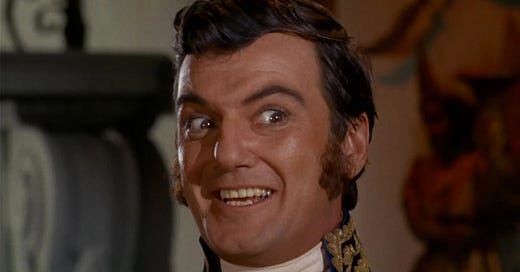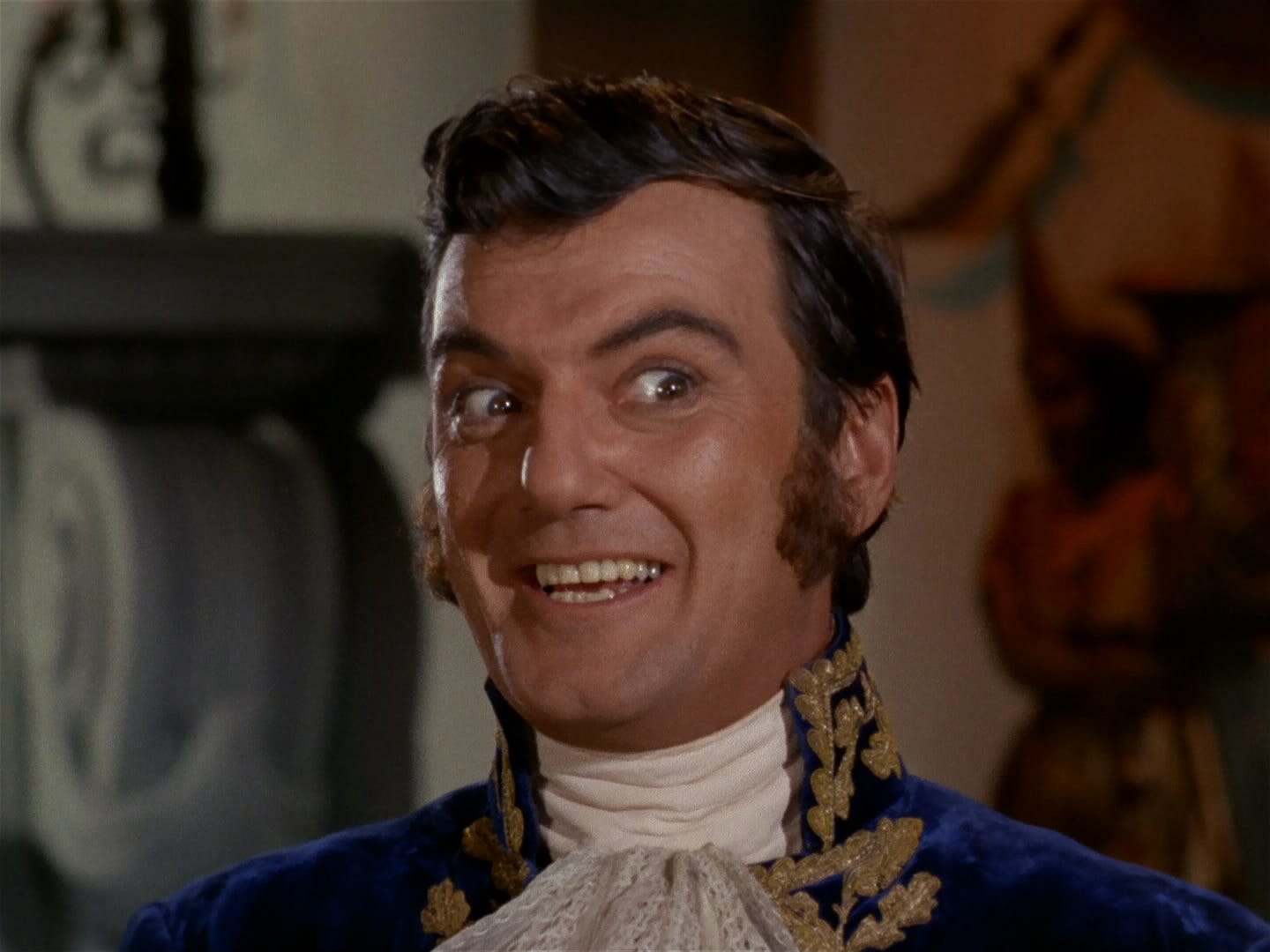Lord Acton is known for pretty much one thing: he was the fellow who said that absolute power corrupts absolutely. It wasn’t so much his idea, but you just know a guy who manages to squeeze “John Emerich Edward Dalberg Acton, first Baron Acton” down to a measly nine letters is going to have a knack for concision. It’s a good bet Acton was thinking of Napoleon when he coined his famous phrase, but in daily life corruption of this sort seems to be primarily confined to those manning airport ticket counters, especially if you’re in a hurry. “Yes the flight leaves at 8:30, but you should be ashamed of yourself for not being here six hours early. I’m afraid I’ll have to route your bag to a different city.”
But that’s petty power and petty corruption. Substantive political corruption in these latter days seems to be the exclusive purview of Vladimir Putin and his orange Floridian toady, though honestly neither of them seem to merit comparison with the colossal world-historic wickedness of Le Petit Caporal, a venality that has inspired entire libraries full of breathless exegesis, a dreadnaught of depravity bent on conquering all of Europe with his terrifying Grande Armée. The pasty-faced Russian named after a bodily function may have similar designs but his army is like something out of a Don Knotts movie. And Trump, well, he was born corrupt.
It’s no great surprise that the eponymous Squire of Gothos comes to us as a sort of Napoleonic-era fop; he’s a classical model of an all-powerful despot, ruling over a tiny model realm—a small patch of territory on a planet with an otherwise toxic atmosphere, kept in check by the Squire’s mysterious power. Kirk and the gang are passing by when they are flagged down with a message: “Greetings and Felicitations.”
Now, I love the word “felicitations”—it’s got a lot of syllables, it’s almost entirely useless, and most people have never heard it and probably think it has something to do with fellatio. I learned it from Star Trek and I deploy it with reckless abandon whenever the situation merits, and sometimes when it doesn’t. So I’m indebted to “The Squire of Gothos,” which is maybe why I like it so much.
Don’t get me wrong: it’s just as ridiculous and improbable as any other episode of Star Trek but “Squire” has a lot going for it. Above all William Campbell as Trelane, the title character. Campbell, a B-grade actor whose career highlights—well, there aren’t any honestly. Here he throws all his might into Trelane, playing the part like it really mattered; his eyes lit with maniacally joy or flashing with anger as the situation turns toward and agin him, his voice likewise dripping with condescension or desire or hatred. Primal stuff, like he was entertaining cancer patients or something. It’s a refreshing change from the usual litany of guest stars on this show, who all seem to have showed up for the paycheck, the only detectable emotion seemingly a desire to go buy more Brylcreem.
With this episode we also see the production design leaning more abstract, turning the show’s financial weakness into a virtue. In the first act the action takes place in an ornate 18th-century style drawing room, where Trelane explains to the away party—which yet again contains one of those 24-year old blonde yeomen that don’t seem to serve any purpose beyond raising a sheen of sweat on the faces of the 42-year old shut-ins everyone imagines are the heart of the show’s audience—that he’s been observing their home planet and has outfitted his little dominion to match. Spock notes that Trelane’s choice of decor suggests he doesn’t realize that he’s been observing Earth as it was in the distant past (though which past is not always clear as the decor is a mishmash of about six different centuries)—the first indication they have that Trelane isn’t as all-powerful as he puts on.
After Kirk destroys the mirror he guesses hides the mechanism for Trelane’s power, the action moves to a courtroom of sorts, where Trelane puts Kirk on trial for “treason” and sentences him to death by hanging. The courtroom is like something out of Thornton Wilder—a bench, behind which sits Trelane in a barrister’s wig, and a small pedestal lit by a spotlight and ringed with a wooden rail. Other than these two pools of light the room is dark, a fact which lends a macabre horror to the approach of the noose, all on its own, casting a long shadow behind Kirk as he scrambles for a way out.
The way out he settles on is to mock Trelane for his lack of imagination. He tells Trelane he’s missing an opportunity for real fun—a hunt. Trelane practically shits his pantaloons with joy at this suggestion, but the episode breaks down somewhat at this point. The “hunt” is ridiculous, taking place in the “forest” around Trelane’s castle—a forest smaller than my living room. Kirk makes no real stab at hiding; the hunt lasts about nine seconds and is supplanted by a brief, ill-choreographed sword-fight in front of the castle. Trelane announces that he’s had so much fun he’s decided to bring the Enterprise’s crew down one by one and hunt them all—an exercise that probably would have kept him busy for about an hour. But Kirk is fed up and does what we would all do in the presence of a being with the power to turn us into a small red smudge on the carpet simply by thinking about it: he scolds Trelane and snaps his sword in two.
I don’t really get where Kirk got the idea that the best way to deal with Trelane would be to treat him like a child, but on cue these two balls of green light appear and begin speaking to Trelane as parents would, reprimanding him for his misbehavior. The balls apologize to Kirk and then take off with Trelane into some parallel universe presumably full of similar light balls. As he disappears from view Trelane intones my all time favorite Star Trek line in the petulant voice of a child, “I coulda won! I coulda!” I say this to my kids every time we play Settlers of Catan.
What is this episode trying to say? Well, I suppose it’s saying absolute power corrupts absolutely. One doesn’t actually see this happen; the only character arc is in Kirk, who moves from angry to very angry. And the deus ex machina at the end seems pretty cheap, more or less like they just ran out of time and ideas. But it’s fun anyway, and I’d watch it repeatedly just for the sheer stupid exuberance of William Campbell turning in the finest performance of his otherwise invisible career. For all its pretensions to philosophical investigation, I think what I always liked most about this show was its simple, highly amateurish entertainment value. Just a bunch of third-rate actors putting on goofy little plays in an odd corner of the weekly TV schedule they weirdly lucked into through the benevolence of Lucille Ball. It’s such an improbable tale and they went at it with the verve of people who didn’t know any better.
Hip hip hoorah. Tallyho!





What! "Dementia-13" not a career highlight? If I recall correctly, this was the movie that Roger Corman threw at a young Francis Ford Coppola to complete. And the rest is a big ol' Marlon Brando shot in shadow so you don't see how fat he is.
I seem to recall D-13 showing up on a local network's "Creature Feature" and a warning was given because of the violence. If I recall correctly, it's pretty tame ... axe murders aside.